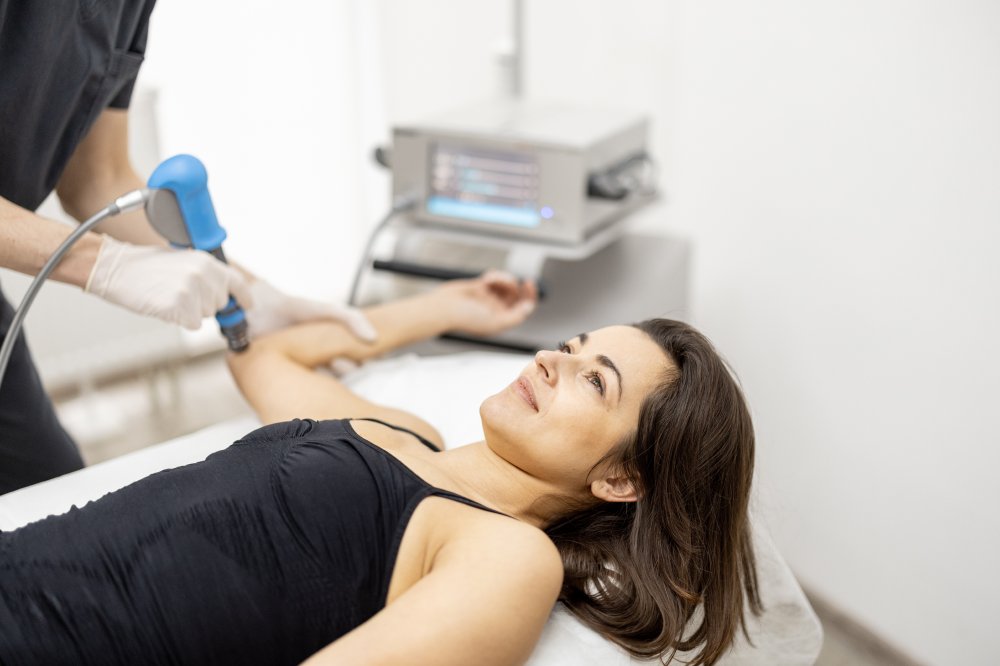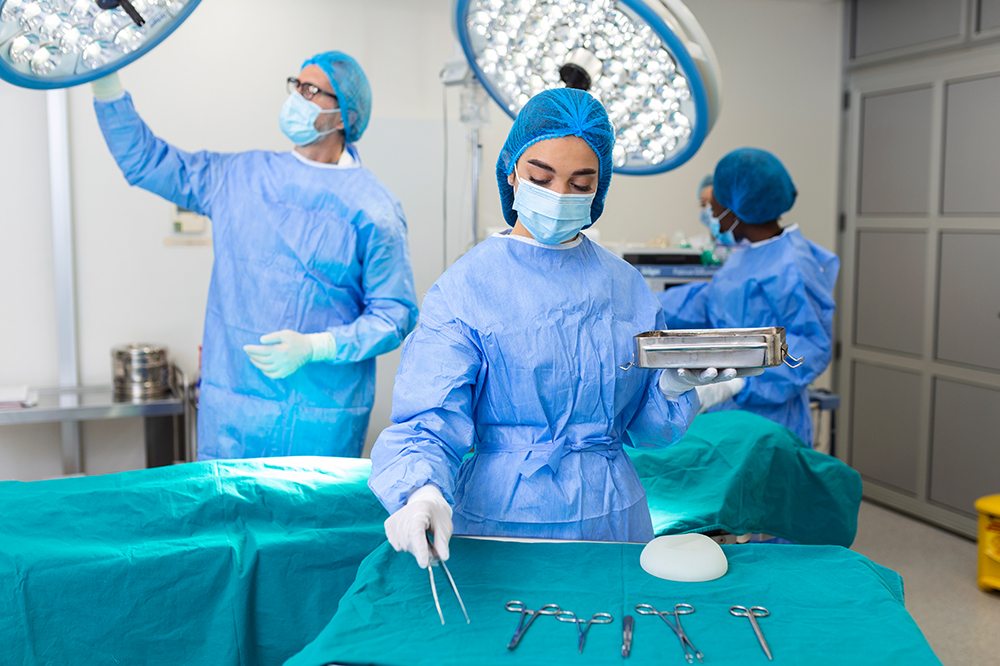What is a Clinical Laboratory?
According to the medical dictionary a clinical laboratory is “one where examination of materials derived from the human body (such as fluids, tissues, or cells) for the purpose of providing information on diagnosis, prognosis, prevention, or treatment of disease.” The services/tests provided by a clinical laboratory cover biological, chemical, biophysical, microbiological, hematological, immune-hematological, cytological, serological, pathological, and other examinations. In order to qualify the laboratory services have to meet the applicable requirements of CLIA (Clinical Laboratory Improvement Amendments of 1988), as set forth in 42CFR part 493.
Hospital Laboratory: Part of a hospital and providing clinical laboratory services 24×7. To qualify as a hospital laboratory, there must be physicians present or available within 30 minutes at all times along with laboratory technologists on duty 24×7.
Physician Office Laboratory: A laboratory that is maintained by either a single or group of physicians to provide services in connection with the physicians’ practice/s.
Independent Laboratory: Independent of both a hospital and a consulting/attending physician.
Referring laboratory: One that receives a specimen to be tested and refers the specimen to another laboratory for the laboratory test.
Reference laboratory: One that receives a specimen from another referring laboratory for testing and performs the test.
Points to remember in Clinical Laboratory Billing
It is important to remember that reimbursements for clinical laboratory tests/examinations can only be given to those laboratories that hold CLIA certificate and state license or registration pertaining to the level of tests/services performed.
Other than laboratory tests for inpatient care in hospitals which is a part of the DRG payment and is covered under Medicare Part A; all other laboratory tests are covered under Medicare Part B. Individual Medicare carriers schedule fees for most clinical laboratory procedures. It is also worth remembering that national caps apply to most laboratory tests.
Clinical laboratory billing guidelines
ICD-10-CM diagnosis code (CPT-4 80000 series) is required to claim all clinical laboratory tests/examinations. Non-specific diagnosis codes (Z00.00, Z00.5, Z00.6, Z00.8, Z01.00, Z01.10, Z01.89, Z02.1 and Z02.3) cannot be submitted by providers when billing for laboratory procedures. However, there are some exceptions to this rule:
- CPT-4 codes 86701 – 86703, 87389, 87390 and 87806 for HIV testing, CPT-4 code 81528 for colorectal cancer screening and HCPCS code G0499 for hepatitis B screening may be billed with any ICD-10-CM diagnosis code.
- CPT-4 codes 80061, 82270, 82272, 82274, 82465, 83718, 83719, 83721 and 84478 may be billed with non-specific ICD-10-CM diagnosis codes: Z00.00 and Z00.8.
- CPT-4 codes 86803 and 86804 may be billed with non-specific ICD-10-CM diagnosis codes: Z00.00, Z01.89, Z02.1 or Z02.3.
Clinical lab tests/examinations are billed using methods depending on the contractual agreement between the physician and the provider facility. Billing options have been defined by the DHCS (Department of Health Care Services) for services that are split-billable and services that are not split-billable.
Split-billable services: Modifiers are not required or allowed when billing for both the technical and professional service components. Modifier 26 is used when billing for only the professional component and Modifier TC (Technical Component) when billing for just the technical component.
Not Split-Billable services: Not separately reimbursable for technical or professional components to different providers. The codes used here do not require any modifiers.
Modifiers in Clinical Lab Billing
Modifiers are used in pathology billing to ensure the claims adjudication system reimburses the correct percentage for the billed component. Modifiers used for clinical laboratory examination/tests are as follows:
| Modifier | Description |
| 26 | Professional component |
| TC | Technical component |
| QW | CLIA waived tests |
| 90 | Used when service is performed by an outside laboratory but billed by another provider. Only specified providers may use this modifier. |
| 99 | Used when two or more modifiers are necessary to define the procedure. The multiple modifiers used must be explained in the Remarks field (Box 80)/Additional Claim Information field (Box 19) of the claim. |
| 33 | Claims billed using modifier 33 is not subject to specific ICD-10-CM inclusion and/or exclusion criteria. Use of modifier 33 indicates the service was provided in accordance with a U.S. Preventive Services Task Force (USPSTF) A or B recommendation. |
*Note: Modifier 99 must not be billed in conjunction with modifier 26 and/or modifier TC. The claim will be denied.
Why MedConverge
Clinical lab billing and reimbursements can be a lengthy process – beginning with laboratory coding, it moves to assigning diagnosis and procedure codes post completion of lab services and then to billing the payer. Post approval by the payer and processing of the claim, the lab has to be reimbursed as per the agreement. In case of a denied claim, requisite changes need to be made and the claim re-submitted for approval and processing.
We at MedConverge understand clinical lab billing regulations and procedures and have certified coders and expert billing professionals, well versed in clinical laboratory services. We can create a customized billing strategy for your facility and take care of all the aspects related to your clinical laboratory billing. For more information contact us at info@medconverge.com
References
- Clinical Labs Center. (2018). Retrieved October 14, 2018, from www.cms.gov: https://www.cms.gov/Center/Provider-Type/Clinical-Labs-Center.html
- Kazon, P. M. (2018). RECENT DEVELOPMENTS AFFECTING CLINICAL LABORATORY TESTING. Retrieved October 14, 2018, from www.healthlawyers.org: https://www.healthlawyers.org/events/programs/materials/documents/mm14/xx_kazon.pdf
- Medicare Claims Processing Manual. (2018). Retrieved October 14, 2018, from www.cms.gov: https://www.cms.gov/Regulations-and-Guidance/Guidance/Manuals/downloads/clm104c16.pdf
- Pathology: Billing and Modifiers. (2018). Retrieved October 14, 2018, from www.files.medi-cal.ca.gov: https://files.medi-cal.ca.gov/pubsdoco/publications/masters…/pathbil_m00o03o04.doc
- Root, C. B. (1998, August). Medicare coding and reimbursement for clinical laboratory services. Retrieved October 14, 2018, from www./clinchem.aaccjnls.org: http://clinchem.aaccjnls.org/content/44/8/1713








